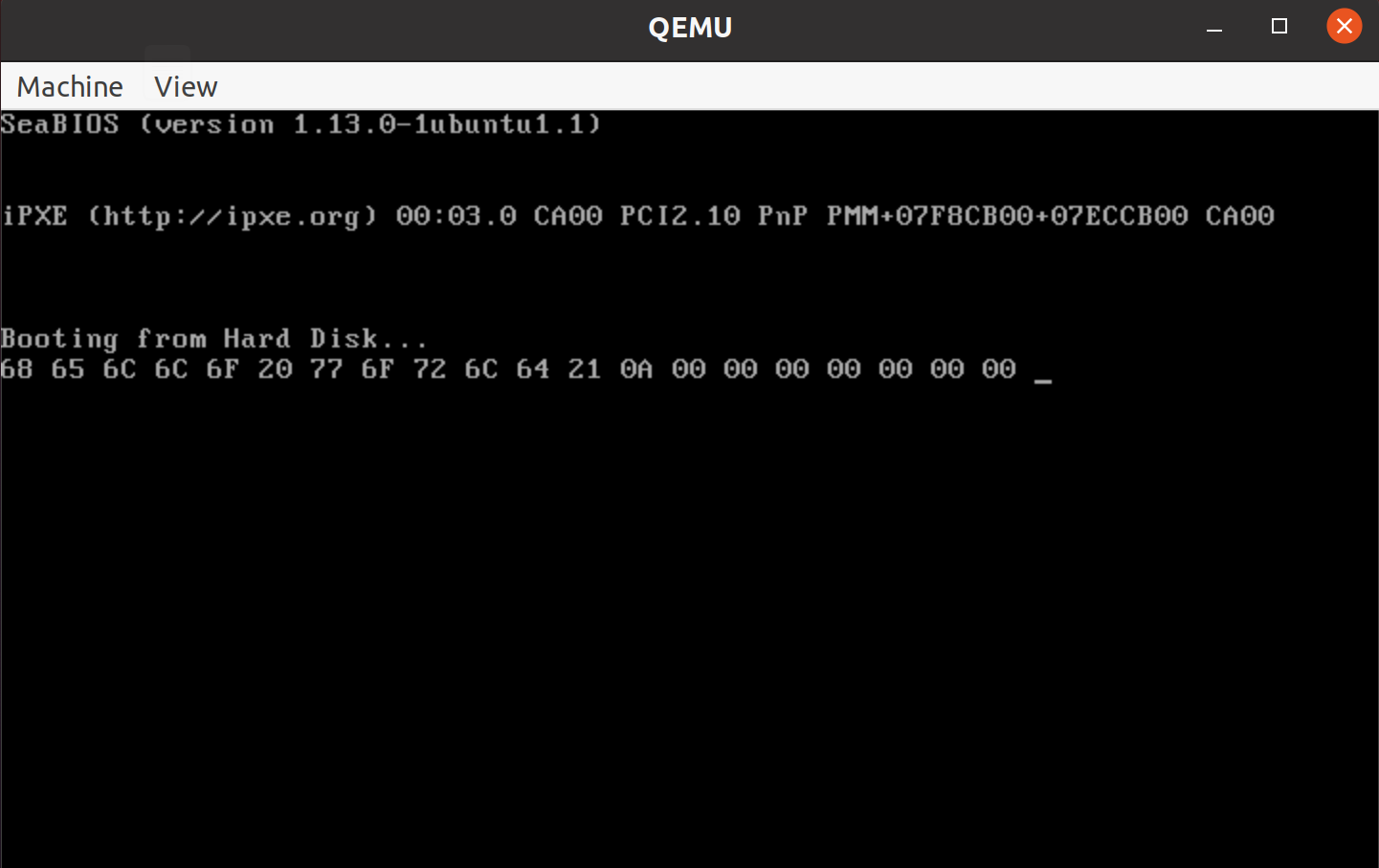有些时候,仅仅打印字符串不足以帮助我们debug,毕竟除了内存里除了可打印字符还有许多不可打印的字符,因此,打印hex时十分重要的
很简单的逻辑
- 设置一个打印字符表,包括
0-9A-F - 遍历要打印的每个字节
- 分别取出其中的高4位和低4位的值
- 用这个值加上打印字符表的基址,就可以获得要打印的字符
- 每两个字符打印一个空格
很难看的实现
打印hello world的hex
[org 0x7c00]
;test code to print hex
start:
mov bp, 0x8000
mov sp, 0x8000
mov bx, hello
mov ax, 20
call print_hex
jmp $
; param
; bx: address
; ax: num of bytes
print_hex:
xor cx, cx
L3: push ax
push bx
mov ah, 0x0e
mov bl, [bx] ; only bx can be used as index reg
xor bh, bh
mov dl, bl
shr bl, 4
add bx, hexTable
mov al, [bx]
int 0x10
xor bx, bx
mov bl, dl
and bl, 0xf
add bx, hexTable
mov al, [bx]
int 0x10
mov al, 0x20
int 0x10
pop bx
pop ax
inc cx
inc bx
cmp cx, ax
jne L3
ret
hexTable db '0123456789ABCDEF'
hello db 'hello world!', 0ah, 0 ; str to print
times 510 - ($ - $$) db 0 ; filled with 0x00
dw 0xaa55 ; magic num of bootsecto
很欣慰的运行

